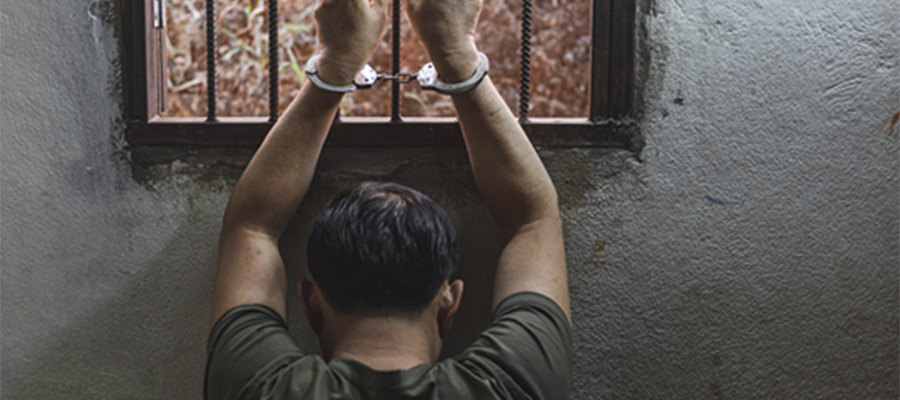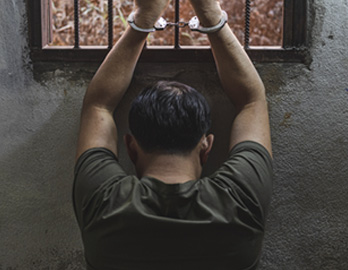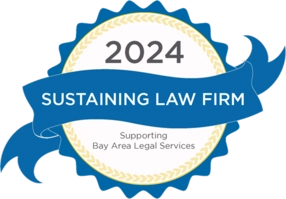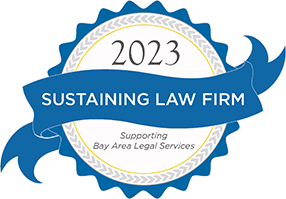Tampa Criminal Defense Lawyer
Tampa Criminal Defense Attorney

Table of Contents
Being charged with a criminal offense can be a scary and stressful event. Whether it is your first offense, or you have been arrested before, each case is the most important case you will face in court. Being arrested or charged with a criminal offense can impact an individual’s employment, housing, and ability to volunteer in their kids’ school or extracurricular programs, among many other things. Some of these impacts can be temporary, while others can be long-lasting and even permanent. Each case, no matter how small or big, must be handled with the same care and dedication to that client’s specific needs and goals. You deserve to have someone in your corner fighting for you.
Tampa criminal defense lawyer Paul Figueroa has handled criminal cases his entire career as a lawyer. Paul started his legal career with the Thirteenth Judicial Circuit Office of The Public Defender as a Certified Legal Intern. This allowed him to represent juveniles charged with misdemeanors under the supervision of a licensed attorney. After Paul was admitted to the Florida Bar in February 2009, he stayed with the Office of The Public Defender. Paul zealously advocated for his clients through his motion practice and trial litigation. In 2013 Paul was promoted to the position of division chief. During that time, Paul still handled a full caseload and litigated numerous trials. In 2017, Paul left the Public Defender’s Office and entered private practice. Since that time, he has continued his dedicated and diligent representation of his client’s.
What Do Criminal Defense Lawyers Do?
When you are accused of a crime, your rights are defended by a defense attorney. Criminal prosecution is serious; if you are found guilty, it will change your life, livelihood, and general well-being. An experienced criminal defense lawyer is aware of the gravity of the issue and can do all in their power to lessen a conviction’s negative effects on your life. Criminal defense attorneys:
- Investigate the allegations against you.
- Gather information for your defense and mitigation.
- Interview and depose witnesses.
- Explore legal challenges to your charges.
- Litigate your case through pre-trial motions.
- Prepare your case for trial.
- Advise you of the strengths and weaknesses of your case.
- Negotiate a resolution to your case with prosecutors including plea options/offers.
- Advise you on your potential plea including any collateral consequences you may suffer.
- Represent you in Trial.
- Present mitigation to prosecutor in plea negotiations, to the court in open plea, or to the court or after a conviction at trial.
Regardless of the charge, a defense lawyer is tasked with defending your rights and compiling the strongest defense based on your charges. Through their research, interviews, and evidence inspection, a talented defense lawyer can develop a strong defense or strategy for their clients. During a trial, your defense lawyer will interview jurors through voir dire, cross examine the state witnesses, object and make arguments for the exclusion of inadmissible evidence, make arguments to the judge and jury, and present evidence on your behalf and help prepare you for your testimony if you choose to testify.
Common Offenses Handled by Defense Attorneys
The breadth of criminal law proceedings can range from simple infractions to full-scale violent felonies that could end in life sentences. In any proceeding, a qualified defense attorney can help provide contrary evidence to the prosecution’s claims. This can give those facing criminal charges a more hopeful outlook on their case. Some of the more common kinds of criminal offenses defended by criminal defense lawyers include:
- Sex Crimes: Lewd or lascivious actions, including sexual activity between minors, sexual violence or rape, and possession of child pornography, and sex trafficking, are some of the most common kinds of sex offenses that occur in Florida. The gravity of the conduct, the defendant’s past convictions, and the age of the victim all play a role in Florida’s sex crime punishments. Serious sexual crimes are regarded as felonies, and the majority of these offenses require registration as either a sexually violent predator, or sex offender.
- Drug Crimes: In Florida, being convicted of drug crimes can result in severe consequences. The penalties for drug offenses can vary depending on the type and quantity of drug, as well as the offender’s prior criminal history. Possessing even small amounts of controlled substances, such as cocaine, can lead to serious felony charges, including imprisonment, fines, and probation. Drug trafficking or distribution charges can carry mandatory minimum prison sentences, and convictions can result in a permanent criminal record, making it difficult to secure employment or housing. Additionally, drug offenses can also have a lasting impact on an individual’s personal relationships and financial stability. Due to the severity of the consequences, it is imperative to seek the guidance of an experienced criminal defense attorney if facing drug charges in Florida.
- Driving While Under the Influence (DUI): According to Florida law, if someone is stopped after allegedly drinking and driving, they might be charged with driving under the influence. A person may be charged with a DUI under Florida Statute Chapter 316, Section 193, if they drive or are physically in control of a vehicle while impaired by alcohol, any chemical substance listed in Florida Statute Chapter 877, Section 111, or any controlled substance listed in Chapter 893, and have a blood alcohol content (BAC) of 0.08 or more. Hiring a lawyer with knowledge of substance use disorders and treatment options can help find and present mitigation to the prosecutors and judges int these matters.
- Theft Crimes: According to Florida Statute 812.014, “stealing” is defined as the intentional taking of another person’s property with the intent to deprive them of access to it or improperly utilize it for their gain. Based on the property that was taken, the charge’s seriousness might change. As of October 2019, Florida has passed new legislation increasing the threshold for a felony to qualify as “petit theft” from $300 to $750. In this case, the government is required to demonstrate the fair market value of the supposed stolen item.
What Offenses Are Considered Violent Crimes?
Per Florida state law, violent offenses are crimes that end with severe felony convictions and can qualify for enhancements such as Habitual Felony Offender, Habitual Violent Felony, Prison Release Reoffender, Violent Felony Offender of Special Concern and others. These comprise:
- Homicide or murder
- Arson
- Rape
- Kidnapping
- Armed robbery
- Aggravated assault
- Crimes involving firearms
- Sexual battery
- Burglary of a dwelling
- Felony/Aggravated battery
- Resisting an arrest with violence
A third degree felony in Florida carries a five year maximum sentence. A second degree felony carries a fifteen-year maximum. A first degree felony involves a thirty year maximum sentence. A first degree felony punishable by life and a life felony carries a maximum sentence of life in prison.
In Florida, the death penalty may be applied for offenses involving:
- First-degree murder
- Felony murder
Because of how serious these offenses can be, finding legal representation for your case is essential to preparing for a trial. With the right defense strategy, your criminal defense lawyer can properly advise you and help you navigate your case through this complicated process and work to achieve the best possible resolution for your case.
What Are the Penalties for a Misdemeanor or Felony in Florida?
Misdemeanors and felonies are the two main classifications for criminal offenses in Florida, as they are throughout the rest of the country. Felons and misdemeanors differ in several ways. Crimes classified as misdemeanors often carry milder punishments than felonies since they are seen as less serious offenses. For instance, if a misdemeanor conviction results in a financial consequence, like a fine or incarceration, it will often be given a lower punishment than a felony sentence related to a similar but more serious offense. A felony conviction can carry a term of incarceration of over a year in prison. However, a misdemeanor conviction often carries a maximum prison sentence of up to one year.
While there are no preliminary hearings in misdemeanor cases, the defendant usually appears before the court and is punished without a jury trial. In felony cases, a preliminary hearing or trial is held to decide the charges. The offender may be detained while awaiting a trial in court. A felony conviction is served in a state or federal prison, but a misdemeanor conviction term will be completed in a county or local jail. Finally, felony convictions may bar one from ever purchasing a gun or exercising their right to vote. However, minor convictions usually have no such lifelong limits.
Misdemeanors are divided into offenses of the first and second degree. First-degree misdemeanors are subject to fines of up to $1,000, up to a year in prison, or 12 months on probation. Examples of first-degree misdemeanors include battery, animal abuse, and drug paraphernalia possession. Second-degree misdemeanors are subject to fines of up to $500, up to 60 days in prison, and/or six months of probation. Driving with a suspended or invalid license, disorderly drunkenness, and several trespassing offenses are examples of second-degree misdemeanors.
Alternately, felonies are typically more violent crimes that warrant a more serious sentence. Prevalent felonies in Florida include:
- Aggravated assault
- Violence
- Carjacking
- Murder
- Kidnapping
- Lewd and lascivious conduct or battery
- Robbery
- Sexual battery
- Aggravated stalking
- Grand theft
- Burglary
- Possession of a controlled substance
- Possession of methamphetamine, cocaine, heroin, etc.
Depending on the crime and its severity, a felony may result in a life sentence or the death penalty. Categories of different felony offenses, plus a separate category for specific drug crimes, have been established by the Florida legislature.
Finding an Experienced Trial Attorney in Tampa
Paul has litigated criminal cases since he was an intern at the 13th Judicial Circuit Public Defender’s office. He has brought that experience with him when he entered private practice in 2017 and used his trial skills to litigate criminal defense matters on behalf of his clients, and continued to go to trial throughout the State of Florida.
To date, Paul has tried over one hundred-forty jury trials in multiple counties throughout the state of Florida. In doing so, he has been able to litigate successfully on behalf of his clients while handling cases of varying complexity and working with colleagues and in front of judges of varying backgrounds and personalities.
All of Paul’s criminal trial experience has been representing defendants. While some may criticize public defenders, Paul, however, truly believes his trial advocacy and skills from the extensive training and knowledge have been invaluable. In fact, without that experience, he might not truly understand the stress, frustrations, and fear of an individual when they are accused of a crime. His life and professional experiences have allowed him to see the humanity in each client that has allowed him to represent them. This means Paul and his staff will always treat our clients without judgment or reservation to ensure that every client gets the diligent representation they deserve and our laws demand.
Paul has represented and continues to represent individuals in private and public who were charged with trafficking, homicide, sexual battery, lewd and lascivious behavior, burglary, fraud, grand theft, aggravated battery, attempted murder, DUI manslaughter, DUI, and many other offenses. Paul has achieved not-guilty verdicts in cases spanning from DUI to trafficking to homicide. If you or a loved one In Hillsborough County needs an experienced criminal defense attorney, contact us today and call Paul Figueroa Law.
If you are currently facing a legal situation or have questions about your legal rights, don’t wait until it’s too late. Call (813) 213-0000 now or fill out our CONTACT form to speak with an experienced attorney who can guide you through the legal process and get you the help you need to protect your future.










